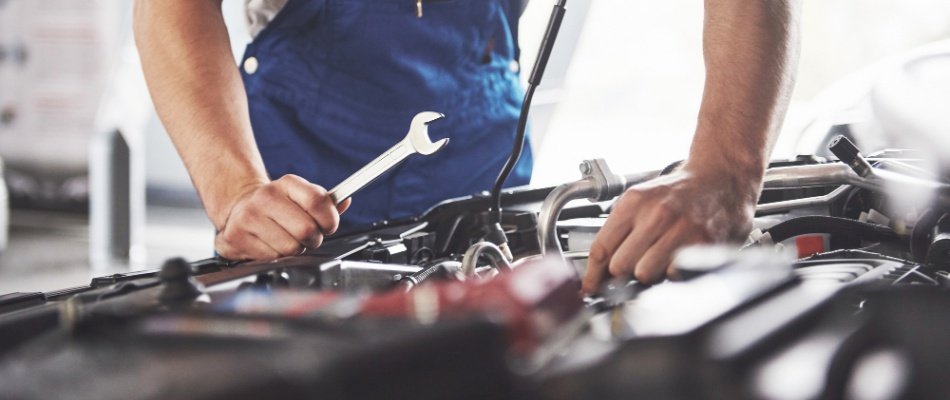With the need to meet the ever-increasing “just-in-time” demand for delivery timelines, changing logistics, and sweating the assets in longer life cycles of duty, it’s easy to slack on the preventive maintenance schedule.
As an operator, having the best tools in your toolbox to solve common problems and knowing when to make needed repairs is the key to meeting your target’s deadlines and keeping your rig rolling on schedule. That means that you’ve got to know all about the requirements of truck repair. Let’s explore some of the more common repairs that fleet operators see with today’s trucks.
1. ENGINE OVERHEATING
An overheated engine can cause many residual effects on a truck. For example, the issue might be a blown gasket, or something related to the fuel tank. Regardless, over time, this can lead to engine failure if the problem is left too long. Therefore, working with a maintenance professional is crucial to review and address signs of overheating on your vehicle. In the long term, this can prevent failure at a critical time and save you big bucks.
On average, here is what you will pay for “check engine” related repairs per state:
TOP 10 MOST EXPENSIVE STATES
| California | $410.73 |
| Connecticut | $406.49 |
| Colorado | $403.03 |
| D.C. | $400.68 |
| Utah | $395.86 |
| Georgia | $395.05 |
| New Jersey | $389.23 |
| Montana | $388.71 |
| Tennessee | $388.13 |
| Virginia | $387.76 |
2. STARTER FAILURE
Starter mechanisms should be reviewed more often as the colder weather approaches. Starter failure can become a common problem in the winter months. Clear signs of issues with a starter will likely be noticed by the operator first, and the ignition will only get worse as the temperature outside gets colder. During the motor start phase, nonessential components (such as radios) should be turned off in order to diagnose the problem.
*Read 5 Tips for Winterizing your semi-truck.
3. U-JOINT FAILURE
U-joints are necessary for power to transfer to the differentiator from the transmission. The U-joints must be lubricated to minimize wear and tear, and if the U-joint is about to fail, a driver may notice a clicking sound. Another sign of imminent U-joint failure can be vibrations at higher speeds. If a driver experiences either of these signs, at the earliest convenience, the U-joint has to be replaced.
4. BRAKE ISSUES
A comprehensive strategy for brake maintenance is critical. On a regular basis, likely due to the pressure from today’s larger payloads, modern trucks frequently experience issues with brake pedals or the braking system. Brake fluid leaks and even total brake failure can occur if trucks have not been maintained effectively. Fortunately, if one brake fails, the independent brake system still allows the driver to stop using the other brakes.
5. WHEEL BEARINGS & TIRES
In order for your wheel to move along the road with as little friction as possible, important components called wheel bearings are necessary. While they’re moving, if the driver notices an unusual amount of noise generated from the wheel wells, the bearings could be degraded. Another sign could be unstable road movements or a jerking feeling of the truck. Even if your tires are properly inflated, these types of problems are extremely common. Make sure to always replace worn out tires and keep plenty of spares on deck.
*Read 7 Crucial Tips for Tire Maintenance and Repair!
PREVENTATIVE MAINTENANCE
Federal safety regulations require all semi-trucks to have a full inspection by a qualified inspector annually. The inspection must meet the federal guidelines, performed by someone with the proper training, certifications, and experience.
*Check out these Tips For Staying in Compliance
Having a five-plus year plan of what you will need to replace could aid in planning and avoiding a show-stopping price tag. In addition, with the current post-COVID-19 climate, finding OEM assets required can be challenging in an emergency. Being prepared and aware of your options can be very critical in a crisis.
Semi-truck maintenance can be expensive and unpredictable, but it’s a necessary evil that comes with ownership. It’s tempting to put off repairs until damage occurs, but regular maintenance is crucial to preventing more severe problems down the road.
Want more information? Check out our blog, Everything You Need to Know About Annual Semi-Truck Maintenance.



